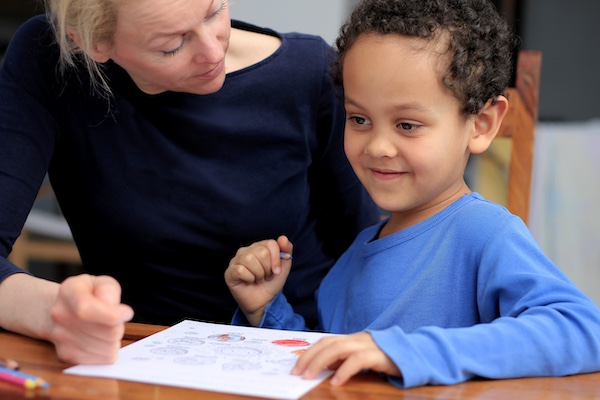Living with autism as an adult can present unique challenges, especially when it comes to managing anxiety. Social interactions, sensory overload, and changes in routine can all contribute to heightened stress levels. While there is no one-size-fits-all solution, research and real-life experience increasingly point to mindfulness as a powerful tool for easing anxiety in autistic adults.
What is Mindfulness?
Mindfulness is the practice of intentionally focusing your attention on the present moment, while calmly acknowledging and accepting your feelings, thoughts, and bodily sensations. It often includes techniques like deep breathing, body scans, and guided meditation.
For autistic individuals, mindfulness offers a way to slow down the rush of daily life and tune into internal experiences without judgment. Over time, this practice can help reduce stress responses and improve emotional regulation.
Recent Posts
- Navigating the Holidays with Your Autistic Child: A Guide for Parents
- Essential Reading for Parents of Autistic Children: A Verified Guide
- Real Families, Real Results: Why AG Behavioral Services Is Transforming Lives Through ABA Therapy
- Understanding Autism in 2025: New Data Reveals Rising Prevalence and Changing Demographics
- “Respond and Expand”: A Simple Way to Boost Communication in Children with Autism
Why It Works for Autistic Adults
- Reduces Overwhelm: Many autistic adults report feeling constantly overstimulated. Mindfulness helps bring focus to the here and now, creating mental space and reducing sensory overload.
- Improves Emotional Awareness: Mindfulness encourages individuals to identify and observe their emotions as they arise. This can lead to improved self-understanding and greater ability to manage intense feelings like anxiety or frustration.
- Enhances Routine and Structure: Daily mindfulness practice itself can become a calming part of one’s routine—something predictable and soothing in an unpredictable world.
4. Promotes Self-Compassion: Mindfulness teaches acceptance without judgment, which can be especially helpful for autistic adults who may have faced years of misunderstanding or stigma.
Getting Started with a Daily Practice
You don’t need to spend hours meditating to feel the benefits. Here are a few easy ways to incorporate mindfulness into your day:
- Start small: Try 5 minutes of deep breathing in the morning or before bed.
- Use guided apps or videos: Tools like Headspace, Insight Timer, or YouTube videos can walk you through short practices.
- Practice mindful moments: Focus on one activity at a time—whether it’s eating a meal, brushing your teeth, or going for a walk—and really notice what you see, hear, and feel.
- Keep a mindfulness journal: Write down how you feel before and after your daily practice. This can help track progress and stay motivated.
Real-Life Impact
Studies show that mindfulness can significantly reduce anxiety levels and improve overall well-being for autistic individuals. A growing number of therapists and autism support programs now incorporate mindfulness-based approaches into their care models.
While mindfulness may not be a cure-all, it’s a simple, accessible, and empowering strategy that many autistic adults find valuable. With consistency and patience, a daily mindfulness practice can help create a greater sense of calm and control in everyday life.
If you’re considering mindfulness as part of your mental health routine, it’s a good idea to talk with a therapist familiar with autism. They can help tailor techniques to your specific needs and preferences.
Additional information from MIT Study click here.
AGBS provides ongoing care for children, adolescents, and young adults with autism to improve the quality of their lives. If you would like learn more about how AGBS can help please contact us here , or call 908-913-0443.




